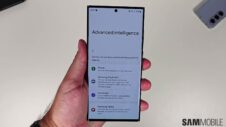More details about the United States Commerce Department's upcoming restrictions on chip exports to China have emerged. Samsung was worried that the forthcoming export restrictions could stifle its infrastructure and memory chip business. But in light of the latest news, both Samsung and SK Hynix seem relatively safe.
Although the Commerce Department might deny requests by USA suppliers to send equipment to China's Yangtze Memory Technologies (YMTC) and ChangXim Memory Technologies (CXMT) starting this week, overall, the regulations are seemingly more flexible than they initially appeared.
Firstly, license requests for exporting memory equipment to China will be reviewed by the Commerce Department on a case-by-case basis, which should mean that Samsung should be able to ship manufacturing equipment to China to continue bolstering its supply chain. Furthermore, suppliers that want to ship memory chip equipment to semiconductor firms in China won't have to request a license from the Commerce Department for certain technologies. More specifically, they are free to sell equipment to firms producing DRAM chips above 18nm, NAND chips with fewer layers than 128, and logic chips above 14nm.
Samsung will likely be unaffected by the USA's restrictions
“The goal is not to hurt non-indigenous companies,” said an anonymous source cited by The Korea Times. Nevertheless, companies in the USA that plan to ship more advanced semiconductor technologies to Chinese chipmakers will have to apply for a license, though they will be subjected to a “presumption of denial,” meaning that said companies will have to present a strong case if they hope to get the green light.
However, the Commerce Department's rules will be more lenient on suppliers in the USA that want to sell equipment to non-Chinese companies operating in China. They will also have to apply for a license, but these applications will be reviewed on a case-by-case basis.
Assuming that the USA will start enforcing these regulations later this week, Samsung shouldn't have too many difficulties shipping semiconductor manufacturing equipment to its facilities operating in China. 38% of Samsung's NAND chips are reportedly produced at its factories in China, and stricter export rules could've been disastrous for the Korean tech giant.






